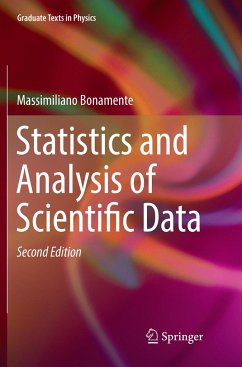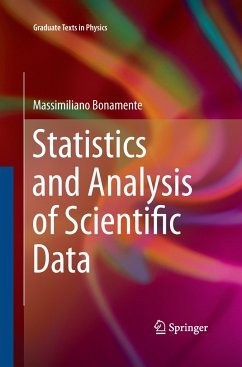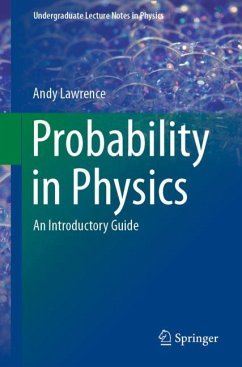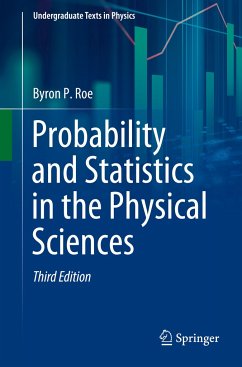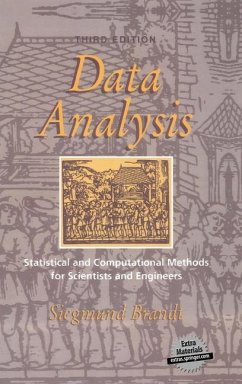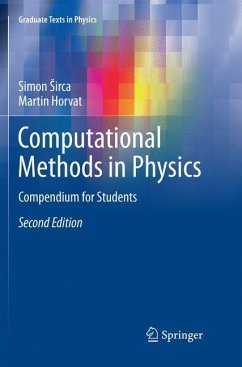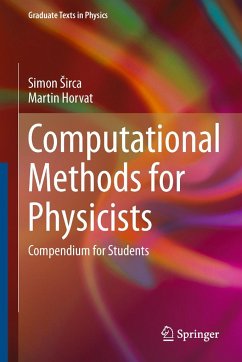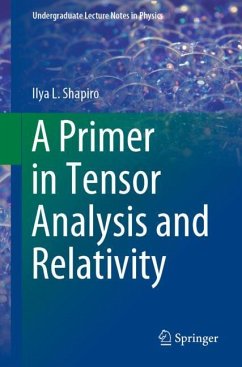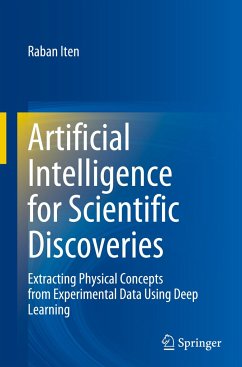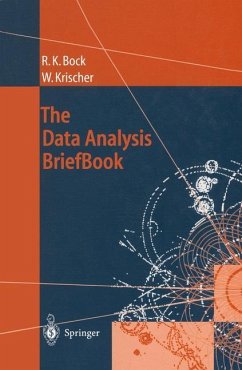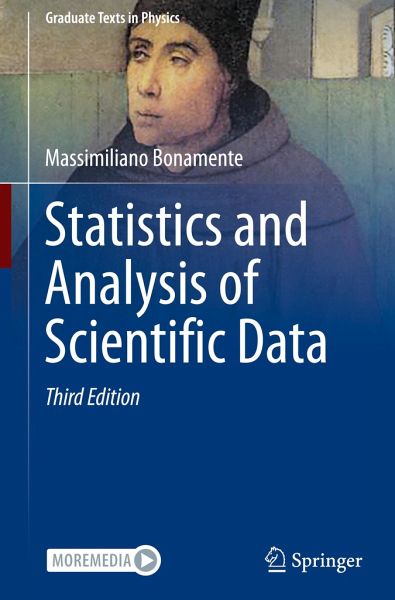
Statistics and Analysis of Scientific Data
Versandkostenfrei!
Versandfertig in 6-10 Tagen
69,99 €
inkl. MwSt.
Weitere Ausgaben:

PAYBACK Punkte
35 °P sammeln!
This book is the third edition of a successful textbook for upper-undergraduate and early graduate students, which offers a solid foundation in probability theory and statistics and their application to physical sciences, engineering, biomedical sciences and related disciplines. It provides broad coverage ranging from conventional textbook content of probability theory, random variables, and their statistics, regression, and parameter estimation, to modern methods including Monte-Carlo Markov chains, resampling methods and low-count statistics.In addition to minor corrections and adjusting str...
This book is the third edition of a successful textbook for upper-undergraduate and early graduate students, which offers a solid foundation in probability theory and statistics and their application to physical sciences, engineering, biomedical sciences and related disciplines. It provides broad coverage ranging from conventional textbook content of probability theory, random variables, and their statistics, regression, and parameter estimation, to modern methods including Monte-Carlo Markov chains, resampling methods and low-count statistics.
In addition to minor corrections and adjusting structure of the content, particular features in this new edition include:
Python codes and machine-readable data for all examples, classic experiments, and exercises, which are now more accessible to students and instructors New chapters on low-count statistics including the Poisson-based Cash statistic for regression in the low-count regime,and on contingency tables and diagnostic testing. An additional example of classic experiments based on testing data for SARS-COV-2 to demonstrate practical applications of the described statistical methods.
This edition inherits the main pedagogical method of earlier versions-a theory-then-application approach-where emphasis is placed first on a sound understanding of the underlying theory of a topic, which becomes the basis for an efficient and practical application of the materials. Basic calculus is used in some of the derivations, and no previous background in probability and statistics is required. The book includes many numerical tables of data as well as exercises and examples to aid the readers' understanding of the topic.
In addition to minor corrections and adjusting structure of the content, particular features in this new edition include:
Python codes and machine-readable data for all examples, classic experiments, and exercises, which are now more accessible to students and instructors New chapters on low-count statistics including the Poisson-based Cash statistic for regression in the low-count regime,and on contingency tables and diagnostic testing. An additional example of classic experiments based on testing data for SARS-COV-2 to demonstrate practical applications of the described statistical methods.
This edition inherits the main pedagogical method of earlier versions-a theory-then-application approach-where emphasis is placed first on a sound understanding of the underlying theory of a topic, which becomes the basis for an efficient and practical application of the materials. Basic calculus is used in some of the derivations, and no previous background in probability and statistics is required. The book includes many numerical tables of data as well as exercises and examples to aid the readers' understanding of the topic.



